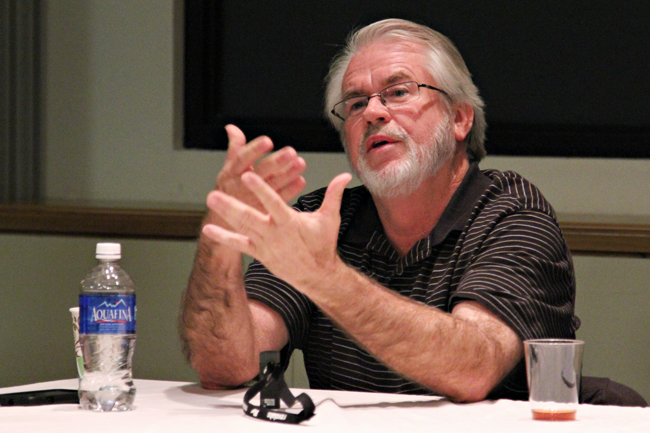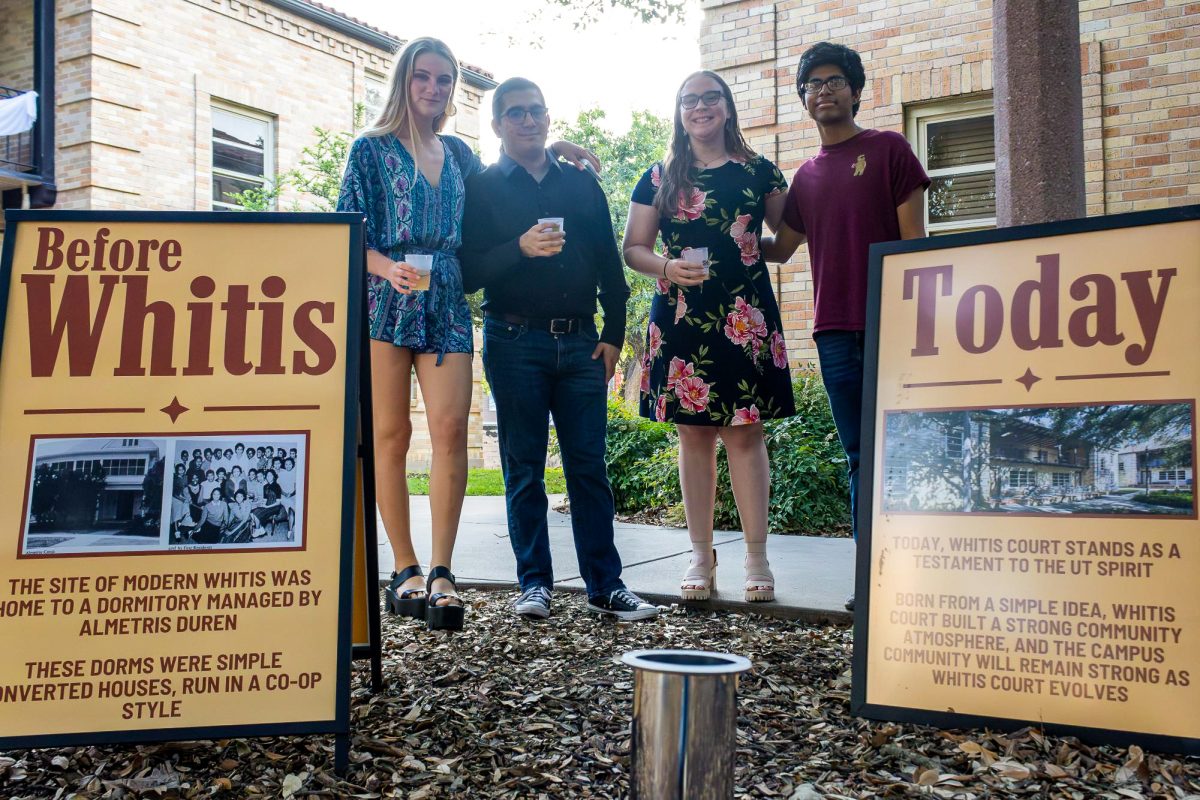A panel of four professors and a greenhouse and food industry employee debated Thursday the health effects of genetically modified organisms, or GMOs.
The panel, hosted by the Polymathic Scholars Student Leadership Panel at the O’Donnell Building, was divided in to two groups — those who believe GMOs affect human health, and those who believe GMOs have no critical effect.
Panelist Mona Mehdy, molecular biosciences associate professor, said relying on genetic engineering is helpful because the planet is currently undergoing many changes, such as the accumulation of carbon dioxide, a growing population and the scarcity of water.
“Genetic engineering is a tool to improve our agriculture, and we’re going to need all the tools that we need,” Mehdy said.
According to Jason Avent, a member of the greenhouse and food industry, the problem with risk within the general public is having too much reliance on corporations for information. He said corporations have the power to design the studies strategically to test the effects of GMOs on human health.
“We don’t want to worry about the side effects, and we simply trust the corporations,” Avent said.
Mehdy also said other scientists often reviewed the studies conducted on the effects of GMOs, and researchers concluded the data did not correlate to the conclusions made.
While all panelists agreed there are unknown risks, molecular biosciences professor David Herrin said there are no health risk factors associated with genetic engineering.
“There aren’t any health causes, and the benefit is lower food prices,” Herrin said. “Benefits far outweigh the cost.”
According to Mehdy, the public is often misled about the truths concerning genetic engineering.
As a solution to the issues around GMOs, Mehdy said more educational and financial investment in agriculture is needed.
“A greater investment for agriculture is certainly needed,” Mehdy said. “One idea is to begin to diversify our crops. Second, there needs to be more public support for the economic livelihoods of farm workers.”
Panelist Randy Linder, integrative biology associate professor, said he agreed education can serve as a remedy to help the general public learn more about GMOs and their potential side effects.
“One important thing to get out of education is to learn what you don’t know,” Linder said.





















